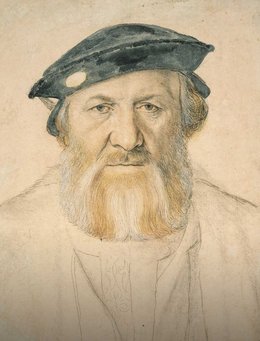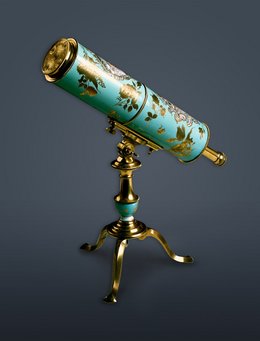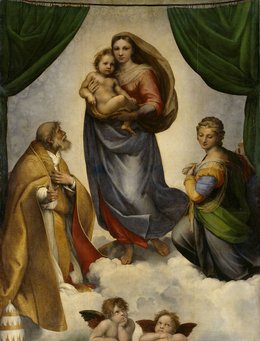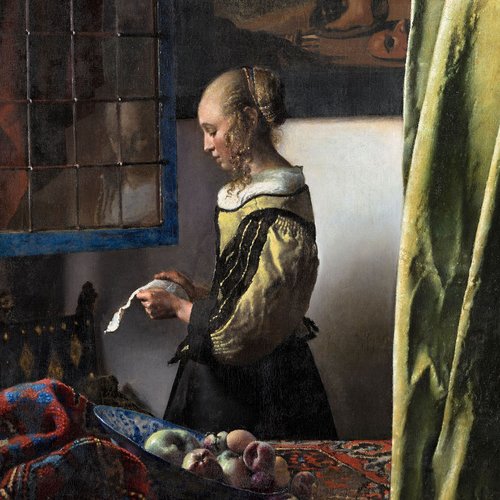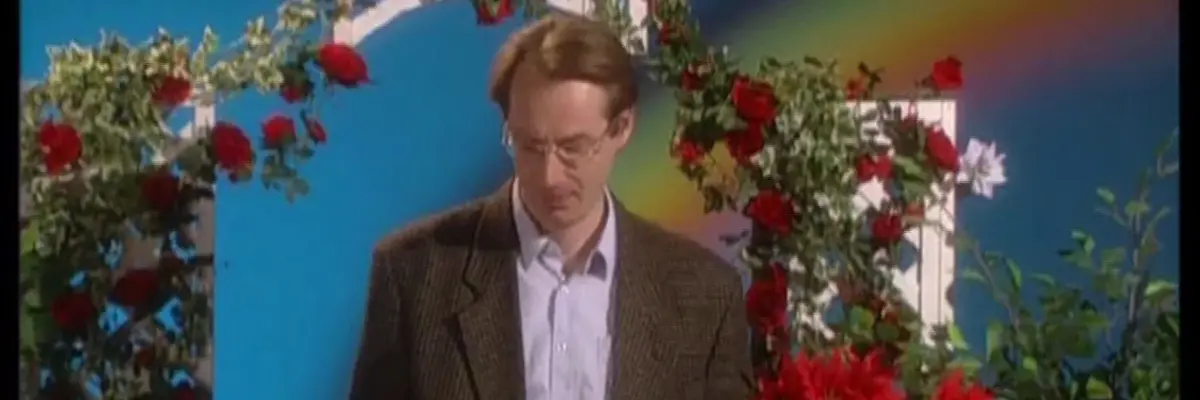
Stephan Dillemuth: Elbsandsteingebirge 1789–1848
In his 1994 film Elbe Sandstone Mountains 1789–1848, artist Stephan Dillemuth (*1954) reinterprets German Romanticism by blending quotes and phantasies, academic language and dilettantism, brushing the movement against the grain. Resembling a campy history lesson, the film collages historical events and iconic works of 19th-century music, philosophy, and literature with punk-style amateur acting and retro-futuristic special effects.
- Exhibition Site Albertinum
- DATES 15/10/2024—02/02/2025
-
Opening Hours
daily
11—17, Monday closed
20/01/2025 — 24/01/2025 closed
- Admission Fees admission free
Schon in seinem ersten Katalog
As early as his first catalog in 1986, Dillemuth references German Romanticism, particularly Ludwig Tieck’s Franz Sternbald’s Wanderings, a novel that portrays the drifting, striving, and becoming of a young artist. Dillemuth often employs the figure of the artist as a kind of puppet through which he can perform art-historical narratives. He draws on the Romantic ideal of the artist, which continues to shape contemporary perceptions, and bases his exploration of various identities and roles on the concept of Romantic irony.
Romantic irony, however, should not be confused with today’s notion of irony, which often serves to achieve conversational or social distinction through a humorous façade. In its original sense, Romantic irony critically reflects on one’s own ambitions, allowing the obstacles encountered along the way to become part of the creative process. The initial goal may not even be reached, but a new, perhaps fragmented form emerges, one that integrates both the pursuit and its impediments.
Elbsandsteingebirge 1789–1848
Elbe Sandstone Mountains 1789–1848 was created during the 1990s, a time when DJ sampling had become a prominent technique in the music industry. Dillemuth’s films from this period can also be seen as a form of sampling, repurposing pre-existing material. Why reinvent certain narratives and settings when they already exist? Dillemuth reassembles these fragments into a new narrative that, in the spirit of Romantic irony, exhibits its various source materials.
The film connects the French Revolution with democratic aspirations in Germany, focusing on a panorama of individuals whose lives intersected in eastern Saxony and its surrounding areas. Embedded in its busy eclecticism is the history of Romanticism’s gradual transformation from revolutionary potential into the conservatism of the Biedermeier era.
Since 2023, the Albertinum presents focused exhibitions
Since 2023, the Albertinum presents focused exhibitions by contemporary artists working with moving images in the Hermann-Glöckner-Raum. The selected video and film works—either on loan or from our collection—often engage in open dialogue with the themes and focal points of our collection displays. Located on the ground floor, the Hermann-Glöckner-Raum is open to the public without admission, serving as an extension of our program in the Lichthof.
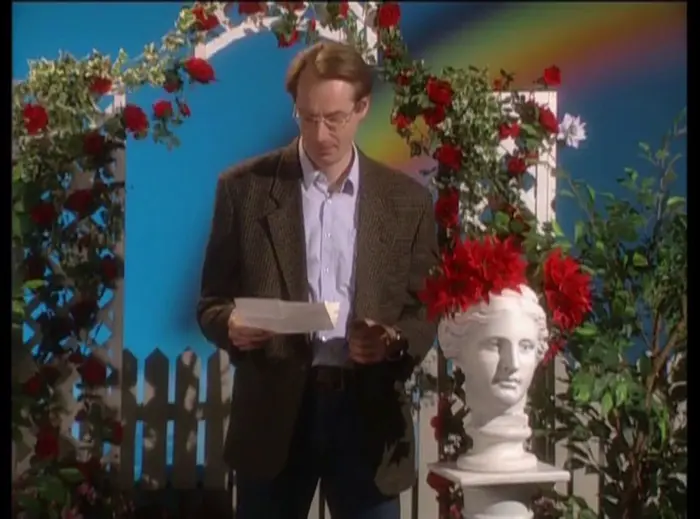
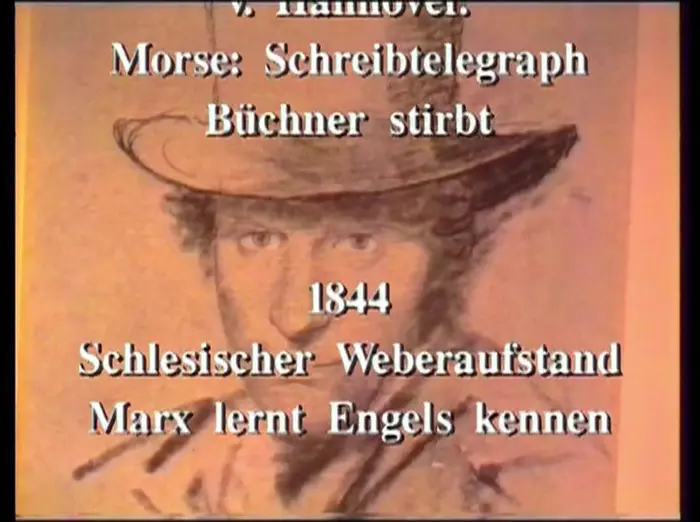
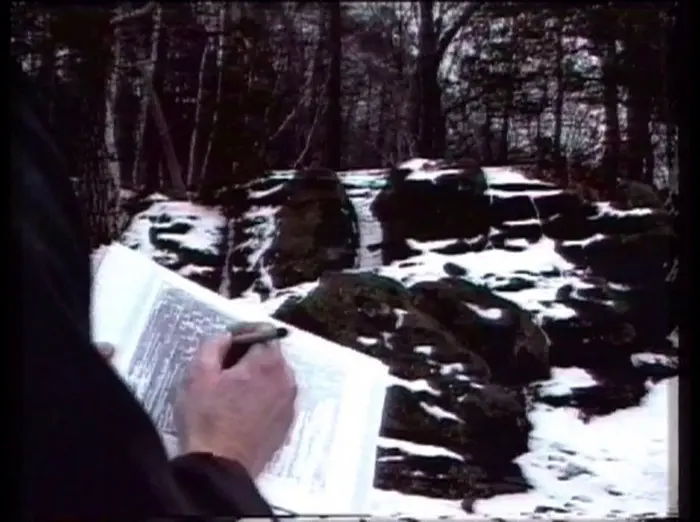
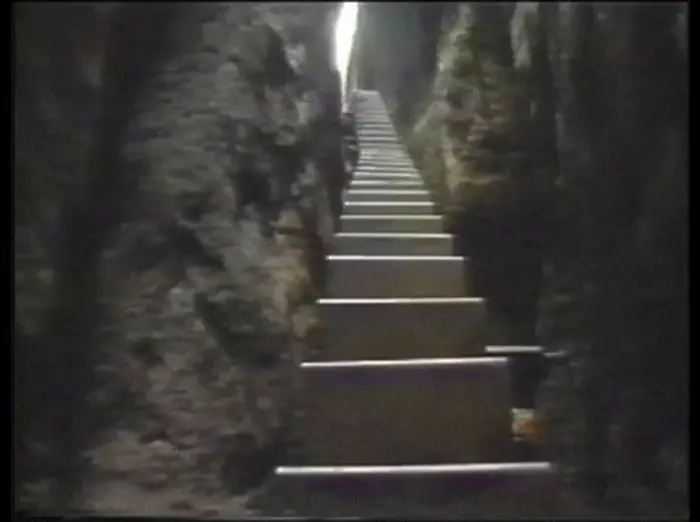
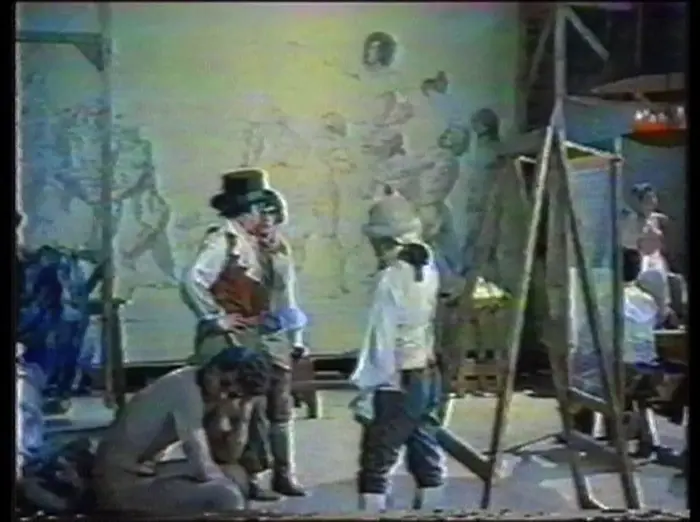

![[Translate to English:] [Translate to English:]](/fileadmin/_processed_/1/4/csm_Oskar_Zwintscher__Bildnis_einer_Dame_mit_Zigarette__1904_1e5932270e.jpg)
